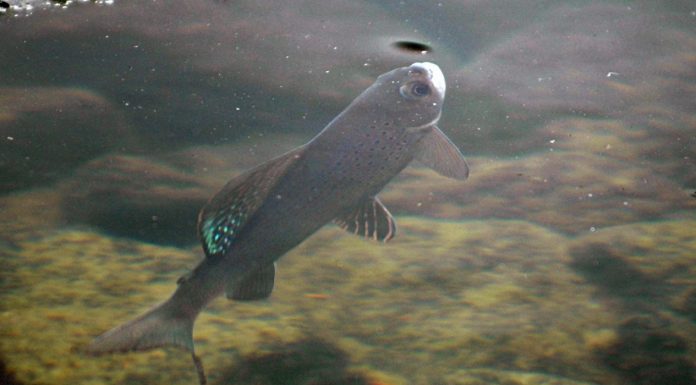U.S. wildlife officials on Wednesday rejected special protections for a rare, freshwater fish species that’s been at the center of a long-running legal dispute, citing conservation efforts that helped increase Arctic grayling numbers in a Montana river.
The Trump administration has pressed, under the direction of EPA administrator Andrew Wheeler, to dial back the massive waterways grab enacted during the Obama administration, which used environmental protections to seize private property and regulate industry.
But a radical environmentalist group failed to persuade officials that the fish at the center of a lengthy courtroom battle, which they claim has been endangered by climate change, is actually at risk.
The Associated Press obtained details of the decision not to protect the fish under the Endangered Species Act in advance of a planned public announcement later in the day.
The move comes almost two years after a notoriously liberal federal appeals court faulted the U.S. Fish and Wildlife Service for arbitrarily dismissing the threat that climate change and other pressures pose to the species.
Known for their iridescent appearance and sail-shaped dorsal fins, Arctic grayling are members of the salmon family that can reach 30 inches in length and are prized by many anglers.
Officials credited a conservation agreement involving landowners and government agencies for recent improvements to the grayling’s river habitat in southwestern Montana’s Big Hole Valley.
The Big Hole River and its tributaries — home to one of the few native populations of the fish in the Lower 48 states — saw grayling numbers roughly double during the last decade to about 1,500 adult fish, said Fish and Wildlife Service biologist Jim Boyd.
“If you can increase the number of breeding individuals, you can start to feel really good about the conservation efforts and know they are truly working,” he said.
Despite habitat improvements including more shade from trees along stream banks to keep the water cool, Arctic grayling occupy only a fraction of the streams across the upper Missouri River basin where they were historically widespread.
The species declined over the past century because of competition from non-native fish and after their habitat was significantly altered by dams and high summer water temperatures.
Efforts to protect Arctic grayling date to 1991, when wildlife advocates petitioned the government to add the fish to its list of threatened and endangered species.
Officials determined in 1994 and again in 2004 that protections were needed. But they were never imposed because other species were given a higher priority.
The Fish and Wildlife Service in 2014 determined that protections were no longer needed because the landowner conservation agreement had helped the fish rebound.
Conservation groups sued in federal court and prevailed when the case reached the 9th U.S. Circuit Court of Appeals in 2018.
The appeals court faulted the government for not taking into account data that showed the fish’s population in the Big Hole River was declining and for dismissing the potential for climate change to cause lower water flows and warmer temperatures.
Attorney Jenny Harbine, with the Earthjustice environmental law firm that represented wildlife advocates in the lawsuit, said the worsening climate crisis leaves the grayling’s survival in doubt.
“The commitment of landowners along the Big Hole River is commendable and absolutely essential for the survival of grayling. We question whether it’s enough,” Harbine said.
Arctic grayling are native to river drainages around the Arctic Ocean, Hudson Bay and the northern Pacific Ocean.
A population of grayling that historically inhabited parts of Michigan was wiped out last century, but scientists are seeking to reintroduce the fish to parts of the state.

